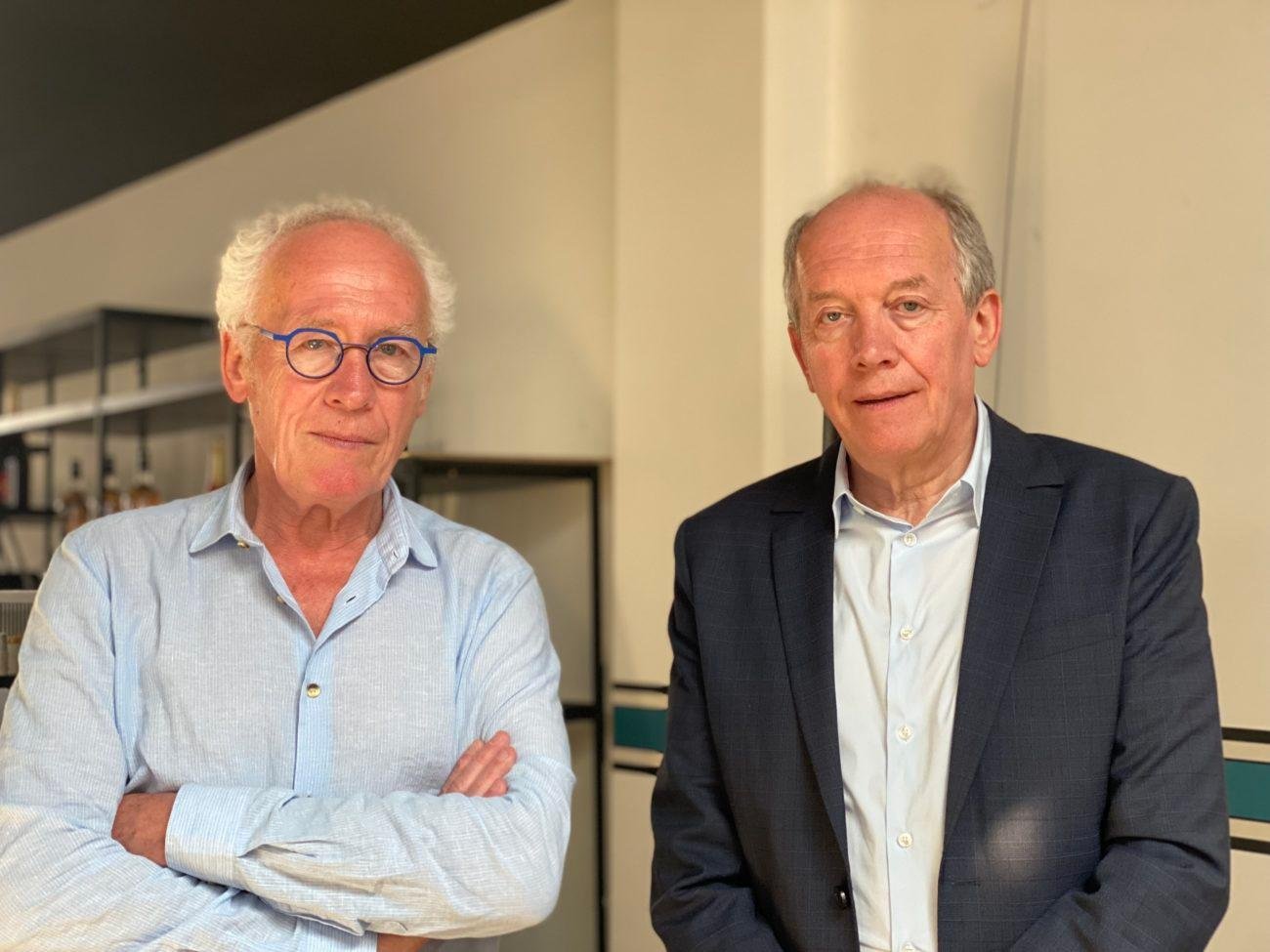The Humanist Cinema of Jean-Pierre Dardenne: Examining the Belgian Filmmaker’s Impact on Modern Cinema
Jean-Pierre Dardenne is a Belgian filmmaker whose works have captivated audiences with their humanist approach to storytelling. Known for their quiet yet powerful narratives, the films of the Dardenne brothers have become a benchmark for contemporary European cinema. In this article, we will examine Jean-Pierre Dardenne‘s unique style of filmmaking, exploring the themes and techniques that have made him an influential figure in modern cinema. From his early work in documentary filmmaking to his latest feature films, we will delve into the world of the Dardenne brothers and explore the impact they have had on the film industry.
Jean-Pierre Dardenne is a Belgian filmmaker whose works have captivated audiences with their humanist approach to storytelling. Known for their quiet yet powerful narratives, the films of the Dardenne brothers have become a benchmark for contemporary European cinema. In this article, we will examine Jean-Pierre Dardenne‘s unique style of filmmaking, exploring the themes and techniques that have made him an influential figure in modern cinema. From his early work in documentary filmmaking to his latest feature films, we will delve into the world of the Dardenne brothers and explore the impact they have had on the film industry.

Introduction to the Dardenne brothers
If you’re a fan of European cinema, you’ve probably heard of the Dardenne brothers. Jean-Pierre Dardenne and Luc Dardenne are Belgian filmmakers known for their humanist approach to storytelling. Their films often explore themes of social justice, poverty, and the struggles of working-class people. They’ve won numerous awards at the Cannes Film Festival and other prestigious events, cementing their place in the world of cinema. In this article, we’ll take a closer look at Jean-Pierre Dardenne’s contributions to the world of cinema and why his films are essential viewing for any movie lover.
Overview of humanist cinema
Humanist cinema is a style of filmmaking that aims to depict the struggles and triumphs of ordinary people in a realistic and empathetic manner. It is characterized by a focus on the human condition, a rejection of flashy visual effects, and a commitment to social justice and equality. Jean-Pierre Dardenne is one of the most renowned practitioners of this form of cinema, with many of his films exploring the lives of working-class Belgians with a keen eye for detail and a deep sense of compassion. His work has won numerous awards and has been widely praised for its humanity and authenticity.
How the Dardenne brothers approach humanist cinema
The Dardenne brothers are renowned for their humanist approach to cinema. In their films, they focus on the struggles of ordinary people and shed light on the social and economic issues facing modern society. They capture the raw emotions of their characters and create a sense of empathy between them and the audience. The Dardenne brothers use handheld cameras and natural lighting to give their films a realistic feel, and they often work with non-professional actors to bring a sense of authenticity to their stories. Their unique approach to filmmaking has earned them critical acclaim and made them one of the most respected names in contemporary cinema.

The importance of realism in their films
The Dardenne brothers, Jean-Pierre and Luc, have gained critical acclaim for their humanist cinema style. One of the key elements of their film-making is the importance they place on realism. In their films, they strive to portray the raw, unfiltered reality of everyday life, often focusing on social issues and the struggles of ordinary people. By using a documentary-style approach, they highlight the harsh realities of life, which can be uncomfortable to watch but also deeply moving. This realism creates a sense of authenticity that draws viewers into the story and allows them to connect with the characters on a deeper level. For the Dardenne brothers, realism is not just a technique; it is a way to create empathy and understanding, making their films powerful and impactful.
Social and political issues in their films
Jean-Pierre Dardenne is a renowned filmmaker who is known for his humanist cinema. His films often explore social and political issues through the experiences of ordinary people. In his movies, Dardenne tackles topics like poverty, immigration, labor rights, and the struggles of the working class. By focusing on the lives of ordinary people, Dardenne highlights the human cost of these issues and encourages viewers to think critically about them. His films are characterized by their unflinching realism and their empathetic portrayal of characters who are often overlooked or marginalized. Jean-Pierre Dardenne‘s humanist cinema is a powerful reminder of the importance of empathy and compassion in the face of social and political issues.
Themes of redemption and human connection
The films of Jean-Pierre Dardenne are known for their powerful exploration of themes like redemption and human connection. As a humanist filmmaker, Dardenne’s work delves into the complexities of human relationships and the struggles of individuals to find meaning in their lives. His films often center around characters who are searching for redemption, whether it’s from past mistakes or difficult circumstances. Through his use of naturalistic filmmaking techniques and a focus on strong character development, Dardenne creates deeply moving stories that resonate with audiences long after the credits roll. In the world of cinema, Dardenne’s humanist approach stands out as a testament to the power of storytelling to connect us all as human beings.

The role of non-professional actors
In Jean-Pierre Dardenne’s humanist cinema, the use of non-professional actors plays a crucial role. Dardenne believes that using non-actors creates a sense of authenticity and realism in his films. He often casts people from the local community where the film is set, giving them the opportunity to share their own experiences and emotions on screen. This approach adds a unique layer of depth to his films, and creates a bridge between the audience and the characters they are watching. It is a testament to Dardenne’s skill as a director that he is able to draw such powerful performances from non-professional actors, and his films are all the more powerful for it.
Critical reception and awards
Jean-Pierre Dardenne is a highly acclaimed filmmaker known for his unique style of humanist cinema. His films have received wide critical acclaim and have won several awards at prestigious film festivals including Cannes and Venice. Critical reception for his films is consistently positive, with many praising his ability to explore complex human emotions and relationships with sensitivity and depth. Awards such as the Palme d’Or and the Grand Prix at Cannes are a testament to the incredible impact that Dardenne’s films have had on the world of cinema. For fans of humanist cinema, the works of Jean-Pierre Dardenne are a must-see.
Impact on contemporary cinema
The impact of Jean-Pierre Dardenne‘s humanist cinema on contemporary cinema cannot be overstated. Dardenne’s films, such as “The Son” and “Two Days, One Night,” have influenced a generation of filmmakers who seek to portray the struggles of everyday people with empathy and realism. His focus on characters facing ethical dilemmas and his use of non-professional actors have become hallmarks of the humanist cinema movement. Dardenne’s impact can be seen in the work of other filmmakers such as the Safdie brothers and Sean Baker, who similarly prioritize the human experience in their films.
Conclusion and future prospects
In conclusion, Jean-Pierre Dardenne‘s humanist cinema has had a profound impact on the film industry. Through his unique approach to storytelling and character development, Dardenne has created a body of work that explores the complexities of human existence with great sensitivity and insight. As we look to the future, it is clear that Dardenne’s influence will continue to be felt for years to come. His films serve as a reminder of the power of cinema to move, inspire, and provoke thought, and we can only hope that future filmmakers will follow in his footsteps, continuing to push the boundaries of what is possible in the art of filmmaking.
For more information about Jean-Pierre Dardenne Humanist Cinema, including movie details, cast information, etc..
check out the filmaffinity page.



